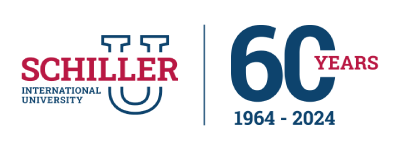
On February 6th, join us at our Madrid campus for a thought-provoking event titled "Is Milei’s a Liberal Project?" as we delve into the foundations and contradictions of Javier Milei's liberalism and political proposal. In preparation for the discussion, International Relations and Diplomacy Professor Miguel Ángel Benedicto offers an in-depth analysis of Milei’s approach to liberalism, questioning whether Milei's political policies truly align with the principles of classical liberalism or represent a populist reimagining.
We invite you to read Professor Benedicto's insightful text ahead of the event and join us for a live debate featuring Carlos Malamud, Principal Researcher at Real Instituto Elcano and Professor of American History (UNED), and Fernando Maura, Director of Libertas, Veritas et Legalitas forum, who will share their expert perspectives on this pressing topic.
Is Javier Milei's project really liberal?
By Professor Dr. Miguel Ángel Benedicto
Javier Milei's rise in the Argentina political landscape has sparked intense debate about whether his proposal can be considered authentically liberal. Milei presents himself as a defender of liberalism, promotes the reduction of the size of the State, free competition and the privatization of public services. However, is his project truly consistent with the principles of classical liberalism?
Milei’s Economic Policies: Free Market Reforms or Populist Strategy?
When it comes to classical liberalism vs. Milei, on the economic level, the Argentine president defends economic freedoms and proposes eliminating taxes, closing the Central Bank and dollarizing the economy, measures that seek to deregulate the market and limit state intervention.
Outside of the Argentina dollarization debate, on the political level, Milei denounces the "political caste" and advocates reducing the state structure, arguing that the public sector is inefficient and corrupt. His speech Argentina free market reforms connects emotionally with sectors that see the State as an obstacle to personal and business development.
Classical liberalism also advocates strong institutions, respect for individual rights, and tolerance for plurality of ideas. On the other hand, Milei's aggressive stances towards his opponents, his contempt for democratic institutions and his authoritarian style have raised doubts about his commitment to liberal values in political and social terms.
Liberalism seeks not only economic freedom, but also an institutional framework that protects rights such as freedom of expression, equality before the law, and the separation of powers. The populism that characterizes Milei's discourse could be interpreted as contradictory to these principles.
The Debate: Can Milei’s Project Be Considered Truly Liberal?
Some analysts argue that the President of Argentina's project combines elements of economic liberalism with a populist approach. Their simplistic and polarizing rhetoric more closely resembles the style of populist leaders who seek to mobilize the masses against a "common enemy," in this case, the state and the "political caste." This distances it from the liberal tradition, which is based on rational debate and consensus-building.
Is the President of Argentina a liberal or a populist with liberal ideas? The future will tell the political positions of Javier Milei.

 Request information
Request information









